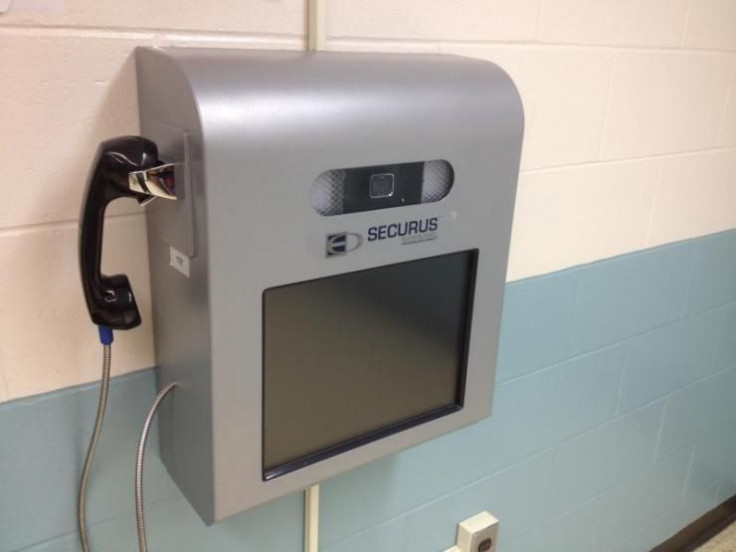Prison-Tech Giant Securus Will No Longer Require Jails To Remove In-Person Visits

Securus, a billion-dollar tech company that works with hundreds of jails and prisons around the United States, will no longer require the prisons it works with to eliminate in-person visitations for inmates and their families.
The decision comes one month after an International Business Times investigation, “Video Chats Are Replacing In-Person Jail Visits, While One Tech Company Profits.” That story detailed how Dallas-based Securus had entered into contracts with about 100 jails and prisons in multiple states that effectively required the facilities to remove in-person family visitations for inmates.
Family members, activists and attorneys interviewed for the story all agreed that video visitations made sense as a supplement to in-person visits. Using them in place of in-person visits, however, was unfair, expensive and potentially illegal. Since mid-2014, three separate lawsuits have been filed against Securus, directly pertaining to its practice of requiring jails to eliminate in-person visits in favor of video visits. The video visits cost as much as $20 for a 20-minute video call -- and the jails typically receive a commission on each call.
In a statement on Monday, Securus chief executive Richard Smith said the company has amended its contract language so that it will no longer obligate jails to remove “person-to-person contact” in favor of its video technology.
"Securus examined our contract language for video visitation and found that in 'a handful' of cases we were writing in language that could be perceived as restricting on-site and/or person-to-person contact at the facilities .we serve," Smith said in the statement. "So we are eliminating that language and 100 percent deferring to the rules that each facility has for video use by inmates.”
“Good news, though it should’ve always been this way,” remarked Bernadette Rabuy, a policy and communications associate with the Prison Policy Initiative, on Twitter. In January, Rabuy and her colleagues at PPI published a report of the prison video visitation industry, titled "Screening Out Family Time: The for-profit video visitation industry in prisons and jails."
“It’s a good day for criminal justice policy when companies like Securus take a step back and say, ‘Hey, maybe we’re not doing something right,’” says Josh Gravens, a prison activist whose work in Texas has prompted national discussions about visitation rights for prisoners. “I hope for Securus it’s a step toward evaluating all their policies.”
© Copyright IBTimes 2024. All rights reserved.






















